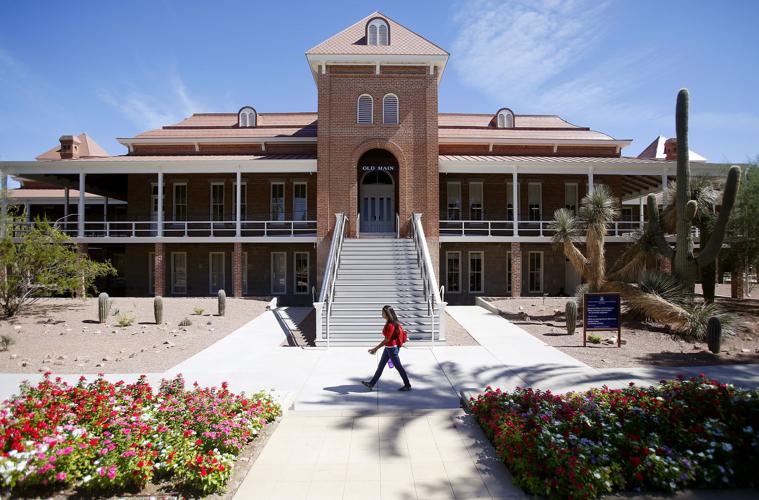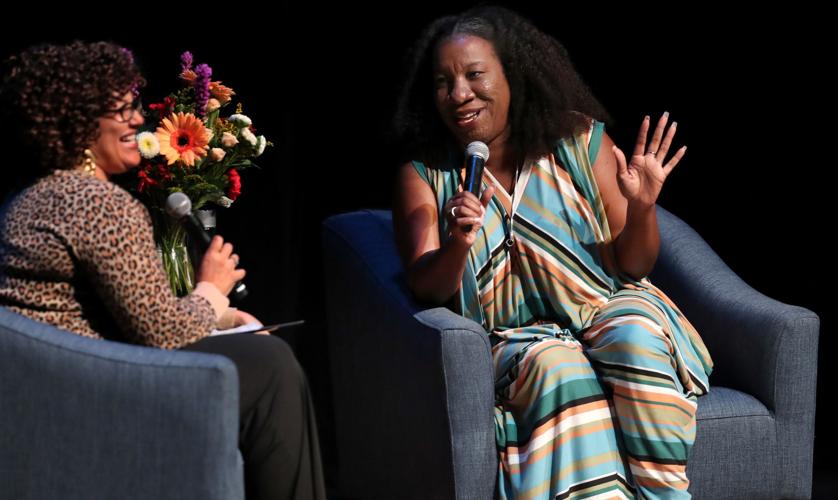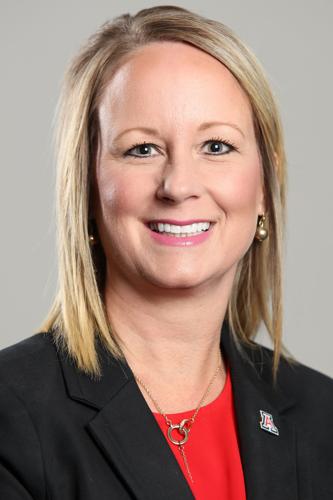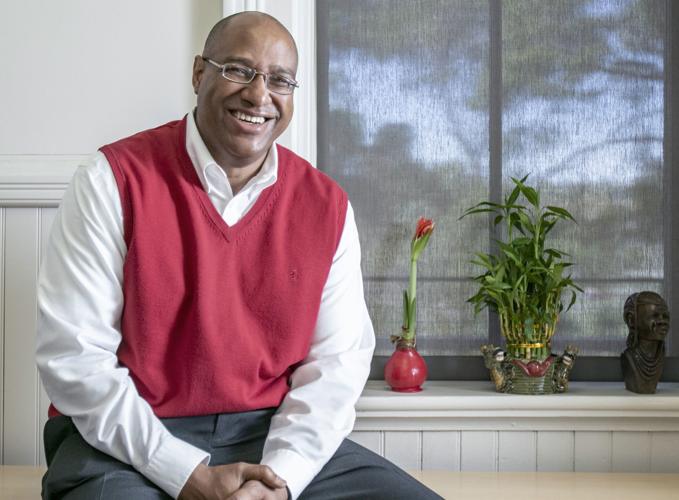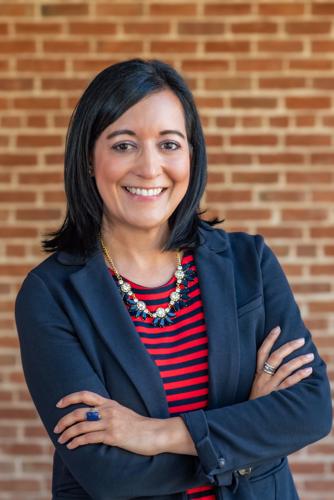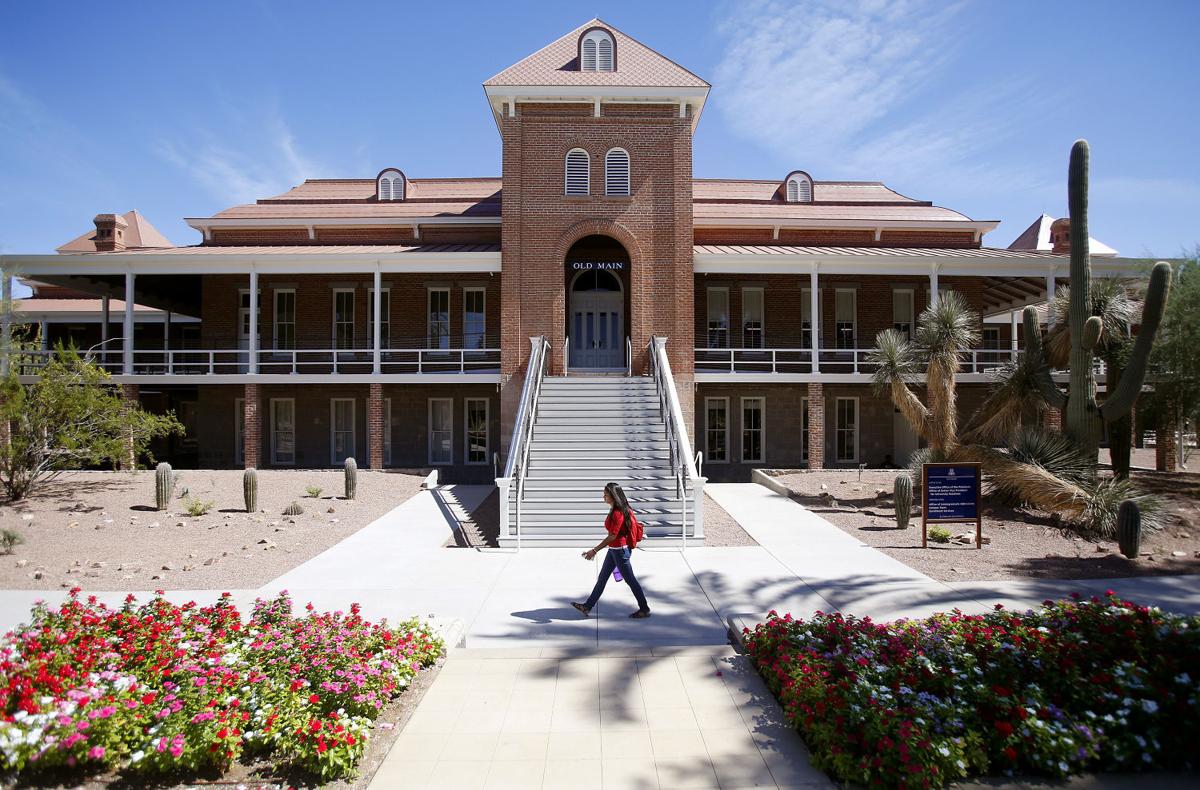Two years after a UA student accused school officials of failing to protect her from an abusive football player, campus officials are making a federal anti-discrimination law a priority and taking their own multifaceted approach to address it — and they’re working alongside the athletic department to help spread the message.
The UA’s overhaul began in February 2018, when it hired an outside lawyer to review the school’s Title IX policies and procedures. Title IX is the federal law that says all students are entitled to an education free from discrimination, including sexual harassment, abuse and domestic or dating violence.
After a nearly two-month review, San Francisco attorney Natasha Baker issued recommendations — including the addition of several Title IX staff members, enhanced prevention efforts and additional training for employees.

Ron Wilson
Last October, the UA hired former South Tucson Judge Ron Wilson as its full-time Title IX director, a position that was previously held by an employee balancing that and many other duties.
Wilson set the foundation for a wholesale change, then took over the new Department of Title IX, Equity and Inclusion. His new office centralizes the functions of the previous Title IX office and the Office of Institutional Equity, which handles misconduct complaints levied by and against employees. He also rewrote the UA’s Title IX policies and procedures; his revisions are awaiting final review by the UA’s compliance department.
In May, Wilson brought in Janis Gallego as the deputy director of the Title IX office. Gallego, an attorney who previously worked for the Associated Students of the University of Arizona’s legal services division, said her first months on the job were “nonstop busy.” She arranged training for the fall semester, reviewed the policies and procedures, and conducted hiring searches for investigators and other staff to support the program’s initiatives.
In August, Gallego and Thea Cola — who handles violence prevention training and education for the Office of Equity, Inclusion and Title IX — held more than a dozen orientations, welcome sessions, team-specific meetings and new staff training sessions with student-athletes and athletic department staffers.
The new department’s partnership with athletics is a natural fit, Cola said, since many student athletes are on campus over the summer. The summer sessions with athletics served as something of a “soft opening” for future trainings.
“Athletics has been a great partner with us in being able to move things forward and being able to show the rest of campus how strong of a partnership we have with athletics has really helped us be able to show the rest of campus how important that is,” Gallego said in September.
UA President Robert C. Robbins and athletic director Dave Heeke stressed the importance of creating partnerships on campus, said Krystal Swindlehurst, the UA’s senior associate athletic director in charge of human resources, internal administration and strategic planning.
“They very quickly set the precedent that developing partnerships and continuing to develop resources and show our commitment to Title IX and anything related to discrimination and harassment is extremely important,” Swindlehurst said.
Swindlehurst’s position was created in 2018 and focuses on personnel services, staff relations, policies and procedures, and training and development. Erika Barnes, executive senior associate athletics director and senior women administrator, still serves as the athletic department’s Title IX contact when it comes to gender equity in athletics.
“It’s a relief for staff to hear that you don’t have to specialize in this and we have resources, and using and understanding the resources takes some of the pressure off a complicated topic,” Swindlehurst said.
The UA is still defending itself in two federal lawsuits related to officials’ handling of reports of violence against women by former Wildcats running back to Orlando Bradford, who is serving a five-year prison sentence after admitting to assaulting two ex-girlfriends. The lawsuits, filed in October 2017 and January 2018, center on the allegation that school officials knew Bradford was violent toward a third woman and exercised “deliberate indifference,” violating the students’ federal Title IX rights.
As part of the changes, the athletic department and Title IX office created flow charts and quick reference guides explaining Title IX issues. They are included in a “Supervisor’s Tool Kit” and given to anyone who manages a sport or unit. The flow chart in the tool kit is also made available to athletes, and differentiates between the reporting processes for the Office of Title IX, the Office of Institutional Equity and the Dean of Students Office.
Additionally, the Title IX office plays a part in all athletic department leadership training, Swindlehurst said. New-hire training includes more Title IX education.
“We’re doing a lot of things — some big, some small — but really showing the commitment of this being embedded into everything we do,” Swindlehurst said.
“You have to meet people where they are”
Cola and Gallego have also been holding targeted training sessions for groups outside of athletics — including the physics department, College of Law, Army/ROTC and other departments on campus. They have also trained fraternities and sororities.
The message is mostly the same, with some group-specific tweaks.
Cola said they take a different approach to the training sessions with groups that are “systems within systems,” like student-athletes, who have to adhere to different standards set by the NCAA, UA and the legal system; or ROTC students, who also have military guidelines.
“We’re trying to provide that support to these students by saying these are the resources and protocols at the university level, but distinguishing them from the standards they’re being held to by the NCAA or the military,” Cola said. “We’re not trying to re-create the wheel,” Cola said, “but we’re trying to make those connections with students.”
Between August and September, the pair taught roughly 35 training sessions across campus. They continue to offer open sessions for students and staff workers two Thursdays each month. The first of those events was held Halloween morning in McKale Center, a literal symbol of the partnership with athletics.
Fifteen students and faculty members gathered in the Lohse Room for the optional training, which included a broad overview of Title IX, what it covers, the differences between the legal process and the UA judicial process, and what happens when Gallego’s office receives a Title IX complaint.
Gallego stressed that just because a complaint is made to her office doesn’t mean that there will be an investigation — that is up to the complainant. Attendees were also reminded of the importance of connecting survivors to resources and setting boundaries, regardless of the relationship to that person.
The attendees were engaged throughout, asking questions of Gallego and Cola and sharing their experiences and roles on campus when it comes to Title IX.
After the presentation, Gallego and Cola presented the group with several scenarios and had them break into small groups to discuss how they would handle each situation.
As of Friday, all UA student athletes and managers have been trained, with the goal of 100% of the athletic department having undergone training by spring, Cola said.
In addition to the in-person trainings, faculty and students also have access to online training sessions. The UA recently switched to a new training model, but Wilson said the ultimate goal is to create and use a program unique to the UA.
Title IX is talking with departments on campus about creating classes for credit, but Wilson has already started teaching his own symposium to first-year students in the Honors College, who will be essentially peer trainers. The course was at its 40-student capacity this year, creating the potential in four years to have upward of 160 students on campus who have had extensive education in issues surrounding Title IX.
“We can build an army of ambassadors and bystanders, and the program can be replicated in other UA colleges,” Wilson said.
Wilson said he’s in talks with the College of Law and Eller College of Management to create similar courses.
Members of the Title IX office have also been diligent about developing relationships with community partners, and they attend monthly meetings of the Sexual Assault Response Team, which allows them to learn about emerging and continuing trends and put them into training sessions. Gallego and Cola also met with the Tucson Police Department to educate officers about Title IX, student privacy laws and the UA’s policies and procedures related to sexual assault.
Staffing in the office has also increased since the start of the semester, with the addition of three new civil-rights investigators to handle complaints. The UA has been using outside investigators to look into Title IX complaints since March and will continue to do so while the new investigators are trained, Gallego said. She plans to hire two more civil-rights investigators this year.
The Star submitted a public records request for the number of investigations handled by outside investigators and the total expense, but university officials have not yet responded.
The school also intends to bring in additional survivor advocates — as of now, just two serve the entire student body — as well as advocates for those accused of Title IX violations.
“We want people to understand that our first response is always to care for the student in the process and make sure they get connected to resources,” Gallego said.
Wilson said the other reason behind adding the respondent advocates is that a significant portion of respondents are victims of abuse, neglect or violence themselves.
“We want to make sure these respondents get the help they need to address the underlying cause,” Wilson said. “Stopping violence includes changing the behavior of the perpetrator.”
There are still changes to be made, including increasing the staff surrounding Title IX and related areas, but ensuring trust and transparency in the process is at the core of Wilson, Gallego and Cola’s efforts.
“If I’m doing my job right, Janis is going to be super-busy in the beginning (of each semester), because the more that they know what their options are, what their resources are and what the Title IX office is, reporting numbers go up,” Cola said. “That doesn’t mean that it’s a bad thing; that means we’ve created an environment where people feel comfortable to seek support and interact with the university system. That’s the continuous goal that Janis and I are always working towards, even at the training level.”
Gallego said she isn’t concerned about the optics surrounding an increase in complaints and that she always tells staff workers that if they’re unsure if they should report a possible Title IX situation involving a student to err on the side of caution.
“We’re really making sure that now people understand, when in doubt, report,” Gallego said.
Getting to that point requires meeting people where they are, Wilson said. “The more options and alternatives we have, the more people we’re going to be able to reach.”
And reaching more people means protecting more students.
“We’re nowhere where we need to be,” he said. “One sexual assault is still one too many.”

The founder of the #MeToo movement, Tarana Burke, right, didn’t address Title IX during her visit to the UA, but a connection was hard to miss.
Reaching people also means bringing new voices into the campus conversation: In late October, the founder of the #MeToo movement spoke to a crowd of several hundred people at the UA’s Centennial Hall.
Sitting in a blue cushioned armchair at center stage, Tarana Burke talked at length about her work before — and after — the hashtag went viral two years ago. She explained the importance of respecting survivors’ privacy when it comes to sharing their experiences.
“You don’t owe anybody your story,” Burke said. “You don’t have to say, ‘Me too’ to be a part of the #MeToo movement.”
Burke likened the increased awareness about sexual violence to the decadeslong campaign against cigarette smoking. It began with scientific research and expanded when cigarettes were mostly removed from movies and television shows, eventually being banned from many public spaces. As a result, smoking has become less socially acceptable than it was in years past, and many young people frown upon the habit.
That kind of a multifaceted approach involving different people and entities worked. Burke is optimistic that the #MeToo movement can follow. She said it’s “literally going to take all of us” to end sexual violence.
While Burke didn’t specifically address the state of Title IX at the UA, which has been rocked by high-profile court cases and federal lawsuits involving the athletic department in recent years, for those who have been paying attention, the connection was hard to miss.


